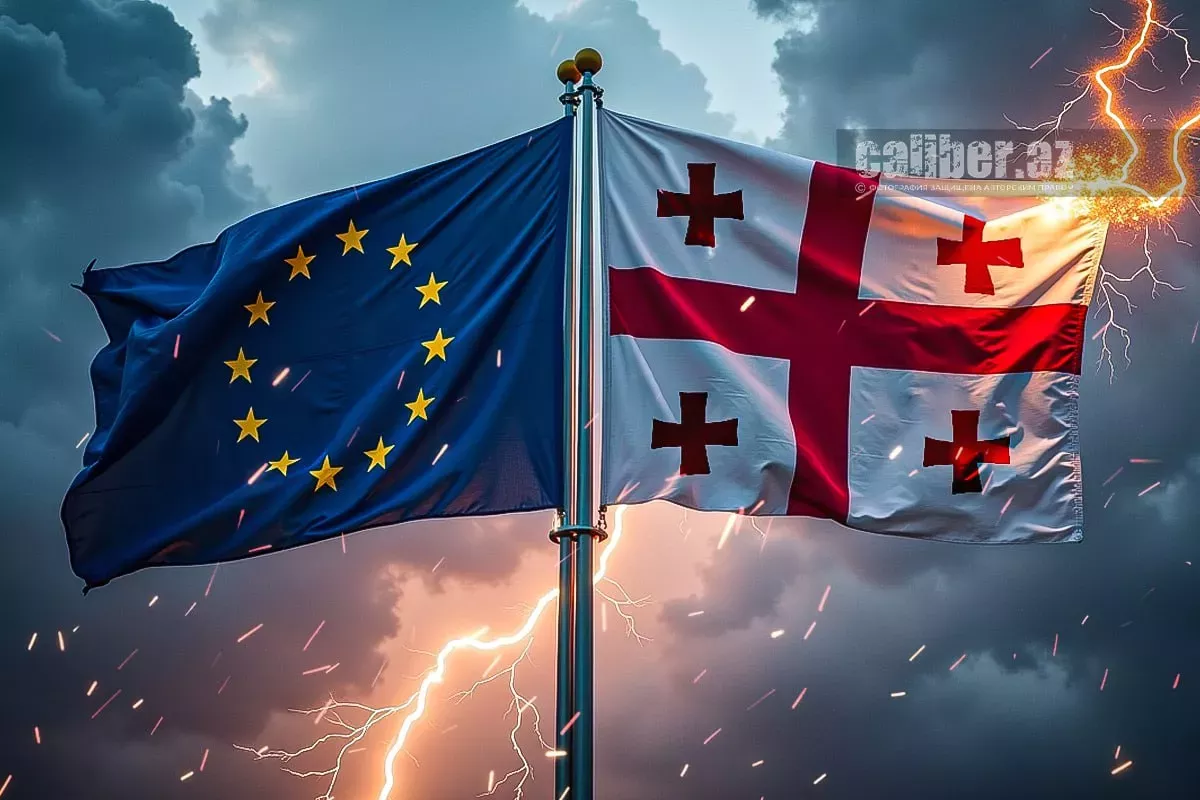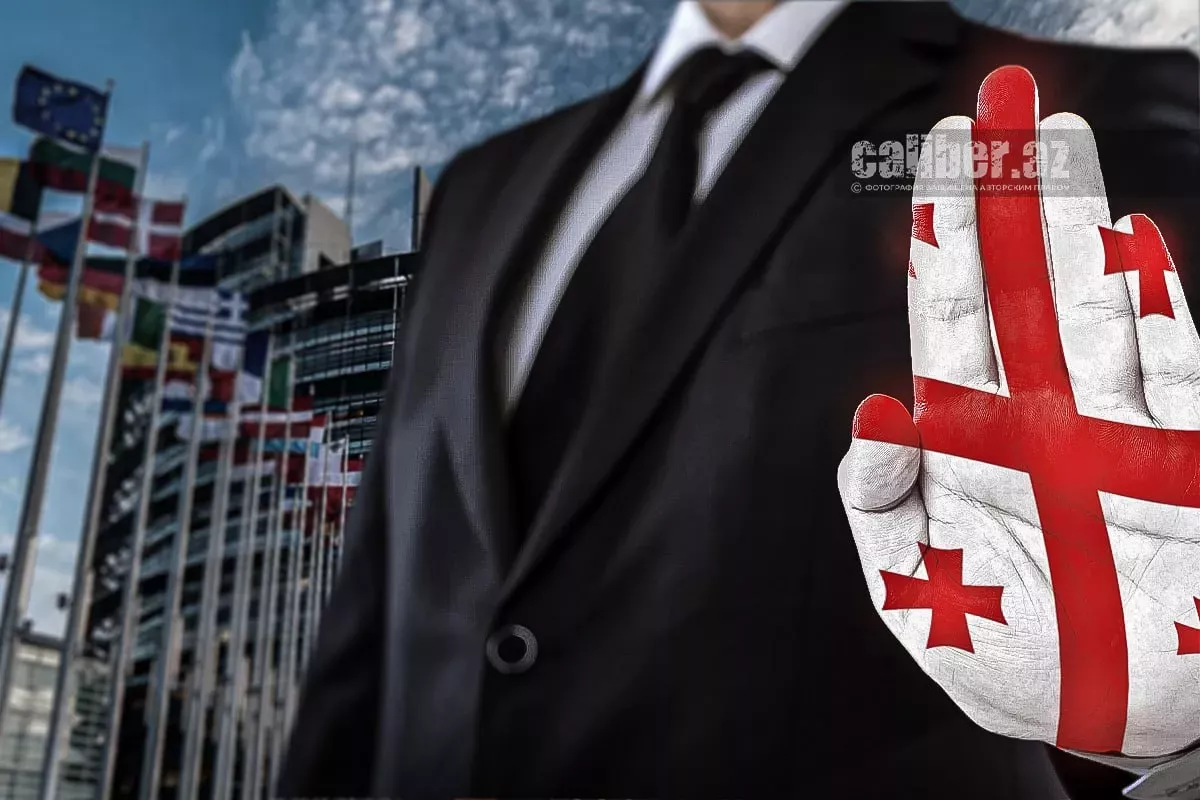Zourabichvili’s “hyperactivity”: A Baltic tour and apologies to Armenians Foreign influence and the push for protests in Georgia
The opposition and former President of Georgia, Salome Zourabichvili, who refers to herself as the "legitimate president," have announced yet another round of "mass protests" on March 31, demanding "early parliamentary elections." While these demonstrations—held every evening on Rustaveli Avenue—have become routine and increasingly sparse, they have long since wearied the residents of Tbilisi. The upcoming protests may seem like just another attempt by the opposition to remind the public of its presence, but they are in fact coordinated with powerful external forces currently working to destabilise multiple countries, from Serbia to Türkiye.
The renewed attempt to mobilise street protests in Georgia aligns perfectly with the strategy of globalist forces and the Deep State against sovereign national governments. Having lost the U.S. elections to Donald Trump and the Republicans, these forces have shifted their focus beyond America’s borders. They are actively seeking to instigate street demonstrations and "Maidan-style" uprisings in countries whose governments resist the global liberal agenda. It is no coincidence that, following Donald Trump’s inauguration, mass protests erupted in Serbia, Slovakia, Hungary, and Türkiye. While these "revolutionaries" have yet to achieve any tangible results, waves of street protests continue to be stirred up in one country after another. Clearly, these actions are being coordinated from the same centres and follow identical playbooks.
As a result, Georgia has once again found itself in the crosshairs of this global strategy aimed at destabilising sovereign states, with Tbilisi set to host another "revolutionary forces’ showcase" on March 31.

To ensure the opposition’s protests scheduled for March 31 appear "massive," its affiliated lobbyists in the United States are pushing for the adoption of the so-called "MEGOBARI Act" against the Georgian government. This act was recently endorsed by the U.S. Senate Foreign Relations Committee.
"This feels like an attempt to energise the protests, rally people, and ignite new unrest on the streets of the capital. Serious questions arise as to why this is happening just as Donald Trump’s administration is declaring an all-out war on the Deep State, which still has its tentacles and can push its agencies to adopt anti-Georgian measures," said Archil Gorduladze, chairman of the Georgian Parliament’s Legal Affairs Committee.
Ahead of the planned mass protests, Salome Zourabichvili also embarked on a tour of the Baltic states. The leaders of these small countries—facing significant emigration of their own populations—seem to have taken on the dual role of "revolutionary instigators" and organisers of a "unified anti-Russian front," encouraging other nations toward confrontation and, if possible, even war with Russia. Unsurprisingly, opposition to Russia became the central theme of Zourabichvili’s visits to Lithuania, Latvia, and Estonia.
In her speech at the plenary session of the Lithuanian Seimas, Salomé Zourabichvili once again accused the Georgian authorities of allegedly leading the country back under Russian control and steering it towards a “Russian-inspired” governance model.
"Europe must act now, if we allow Georgia to fall into Russian hands again, it will not only be a tragedy for my country, it will be a strategic catastrophe for Europe," Zourabichvili declared.
It is worth noting that the Baltic states are currently experiencing yet another wave of fearmongering—both among their own populations and across Europe—regarding the so-called "Russian military threat." It is difficult to predict where this propaganda campaign will lead, aside from further mass emigration and the continued depopulation of the Baltic region. However, both Zourabichvili’s visit and her statements aligned perfectly with the local militarised anti-Russian agenda. The pro-Western Georgian opposition’s protests on March 31 will likely receive yet another round of support from Baltic politicians.

"We see that Salome Zourabichvili has no resources within the country to seriously influence political processes. In general, the radical opposition also lacks such resources... They are artificially trying to use foreign resources to destabilise the situation in the country. We know that over the past year, in an effort to put pressure on the country, representatives of the Baltic states have become particularly active, serving as our new ‘backers.’ Salomé Zourabichvili and her supporters are travelling to meet with their backers. Attempts are being coordinated from abroad to ensure that at least some people take to the streets on March 31. Therefore, we are witnessing a revival of the 'Wilsonian approach' in America. For example, $600,000 has been allocated to organise certain activities in Congress. Meanwhile, Zourabichvili is visiting the Baltic states so that by March 31, they can make even more extreme statements. The goal is to breathe new life into a failed and bankrupt revolution. Zourabichvili was useful as long as she held the presidency. After losing the presidential office, her 'action value' sharply decreased. Now, she is in the Baltic states with foreign funding. They will try to use her visit to spread hostile messages against Georgia and stir up new discontent among the people," said Irakli Kadagishvili, Chairman of the Parliamentary Committee for Local Self-Government, about Zourabichvili's trip to the Baltic states.
Commenting on Salomé Zourabichvili’s trip to the Baltic states, the Speaker of the Georgian Parliament, Shalva Papuashvili, highlighted several negative aspects regarding these countries and European bureaucracy’s attitude toward Georgia, such as the denial of national sovereignty, undermining legitimate authority, and creating an imaginary parallel world.
"We have heard many times that the Baltics ‘support Georgia’s sovereignty and territorial integrity’. However, as soon as these words meet the real world, they ring hollow. How do these countries support Georgian sovereignty if they ignore the will of the majority of Georgian people to elect their own government? How does recognizing an ex-president, whose term expired last December, as the ‘legitimate authority of Georgia’ square with the talk of ‘supporting Georgia’s sovereignty’? The essence of sovereignty does not change depending on who is recognizing or threatening it. For Georgians, it does not make much difference whether the Soviet Union or Lithuania undermines our independent right to form the government," said Shalva Papuashvili. He also believes that, in recent months, there have been attempts by high-ranking politicians from the Baltic states to set the Georgian government against the Georgian people.
"Creating a fake and chaotic virtual universe, in which Georgia is a brutal dictatorship under Russia’s control, completes the delusional policy that the Baltics pursue. This falsity has nothing to do with caring for democracy but has obvious geopolitical reasons. Estonia, Latvia, and Lithuania tried desperately to increase their own security by trying to distract Russia elsewhere, and thus pushing Georgia towards open confrontation with Moscow after the invasion of Ukraine. By insisting that Georgia, a non-EU and non-NATO country, impose bilateral sanctions on Russia, they counted on further Georgian-Russian escalation and, in effect, sacrificed Georgia for their own interests. There is no other logical explanation for their policy, because Georgia would not survive an armed conflict with Russia without the NATO security umbrella.
If the Baltics were serious about Ukraine, they would march their troops to the Ukrainian front. For this, they never needed any permission.
It is time for the governments of the EU member states to sideline the Baltics’ tantrums, cut through this vicious circle, and bring Georgian-EU relations back on track," wrote Shalva Papuashvili, Speaker of the Georgian Parliament, on social media.

While in the Baltic states, Salome Zourabichvili exploited the theme of the "Russian threat," in Georgia, her demonstrative "apology" to the Armenians essentially called on citizens to "revere" the "ancient Armenian people." Zourabichvili made a public apology to Armenia and the Armenian people for an incident that occurred on March 23 at the "Dinamo Arena" in Tbilisi following the return leg of the UEFA Nations League playoff match between Georgia and Armenia, when a conflict broke out between Georgian and Armenian fans.
"As the legitimate president, I would like to apologize to our neighbors for the disgraceful actions of some of our uncivilized citizens. We are and will remain friendly nations, peoples of ancient Christian faith, living together in a peaceful European Caucasus!" Zourabichvili wrote on social media.
The question arises: who authorized Salome Zourabichvili to "bend" before Armenia and the Armenian people for an incident to which the vast majority of Georgians were not connected, and whose cause has not been investigated? Why, in her "apology," repeat the familiar nationalist theses of the Armenians about their "exceptional" "ancientness," "civilization," and "Christianity"? Does this mean that Zourabichvili’s French handlers believe Georgians should humble themselves before Armenian nationalists? Doesn’t this imply that such apologies and humiliations for any reason will become routine when the opposition comes to power?
By the way, neither the Armenian leadership nor representatives of Armenian civil society organizations have apologized to Georgia and the Georgian people for the involvement of their compatriots in the war in Abkhazia on the side of the separatists, for the atrocities committed by the Bagramyan Battalion and similar formations. Moreover, the "ancient Christian faith" did not stop Armenian militants from killing and expelling their Georgian neighbors. There has also been no apology from Armenia for the fact that, during the August 2008 war, Russian planes took off from its territory to bomb Georgia. It is strange that, while emphasizing the "Russian threat," Salome Zourabichvili forgot how the Armenian people, whom she loves so much, helped Russia’s aggression against Georgia and participated in stirring up separatism in Georgian territories alongside Russia.
By her apology to Armenia, Salome Zourabichvili has essentially made it clear to the citizens of Georgia what the South Caucasus will look like if people like her come to power.
Vladimir Tskhvediani, Georgia, exclusively for Caliber.Az








